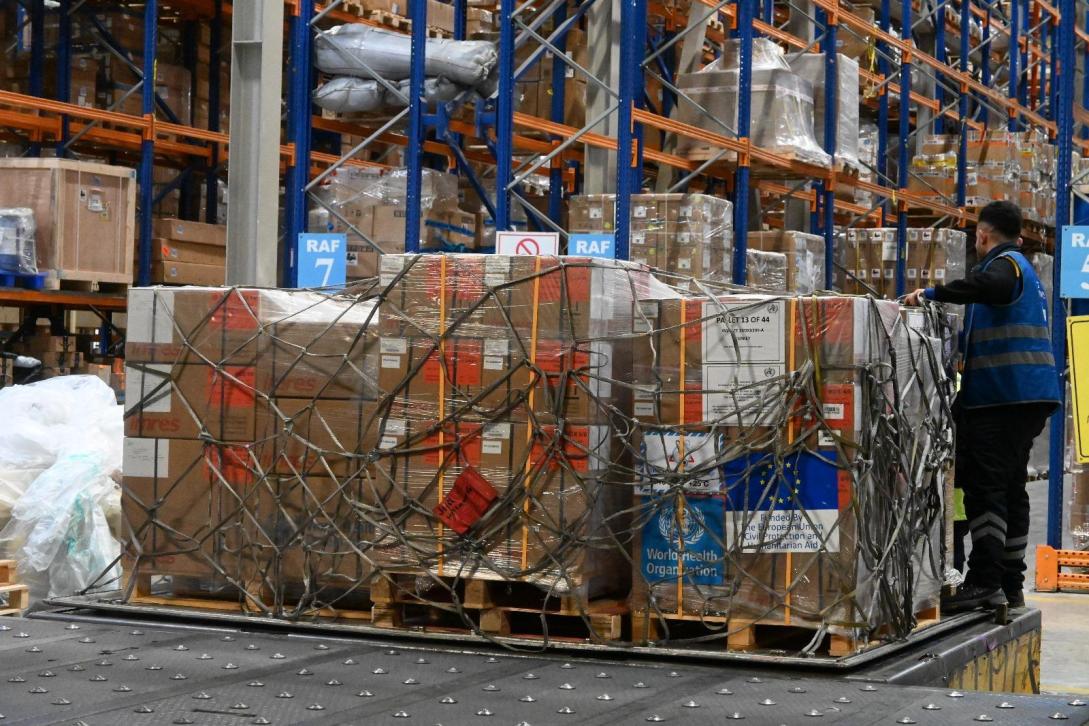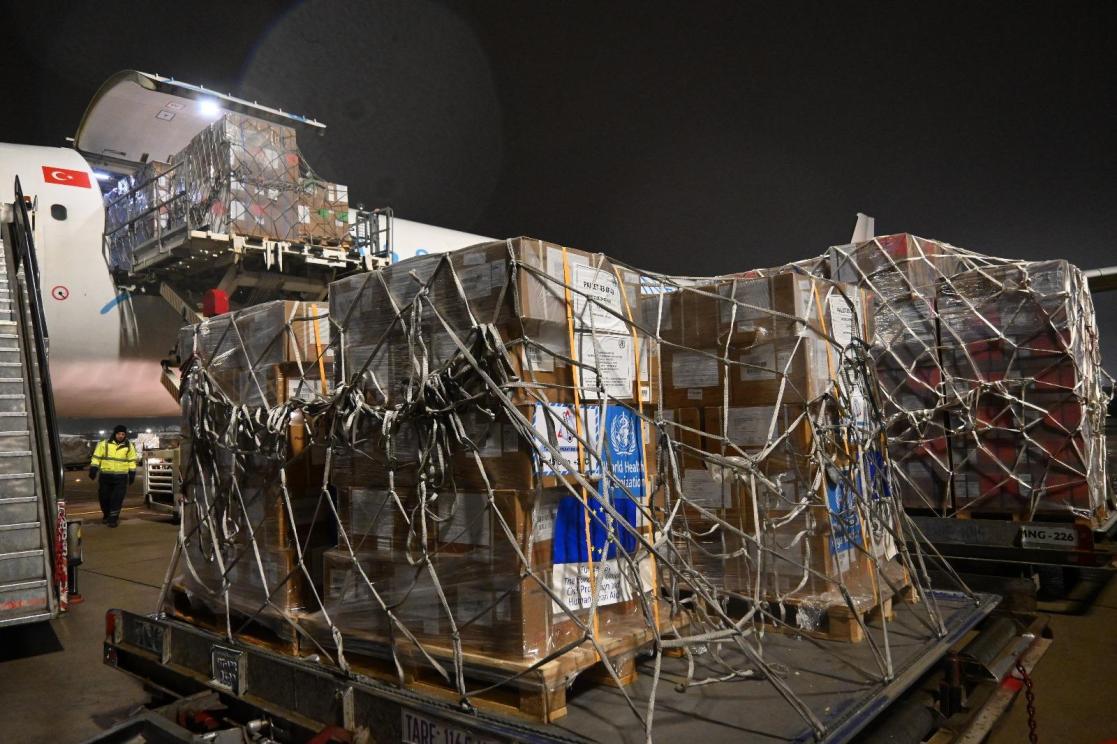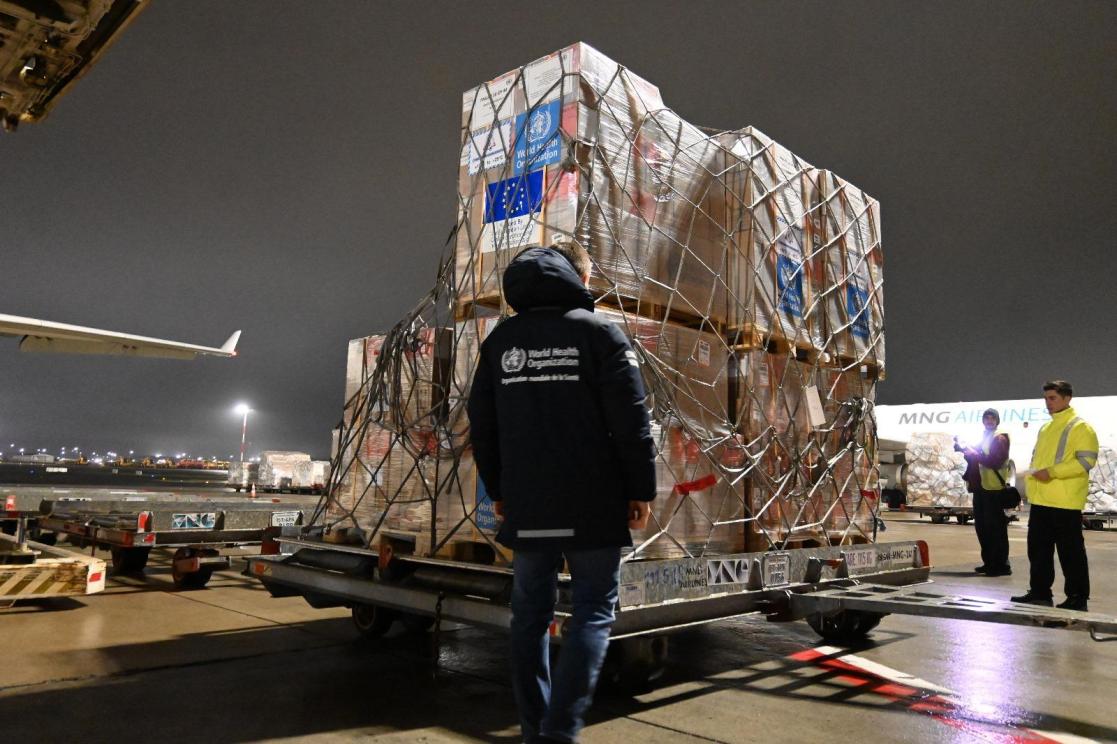Fifty tonnes of EU-funded medical supplies reach Türkiye for delivery to Syria’s overstretched health facilities

“This delivery is a lifeline for millions of Syrians facing extraordinary hardship,” said Rosa Crestani, WHO Emergency Lead for the Gaziantep field office. “These supplies could not have come at a more critical time, as health workers struggle to provide care in overstretched facilities. We are deeply grateful to the EU for its unwavering support, which has made this consignment possible. This delivery will help save lives and strengthen services in areas where healthcare systems are at breaking point. WHO will continue to deliver vital support wherever it’s needed most.”
The shipment, which will benefit thousands of Syrians, includes Trauma Emergency Surgery Kits (TESK) and essential medicines. TESK are specially designed kits for trauma care in emergencies, containing surgical tools, anesthetic supplies, IV fluids, and sterilization materials. The consignment also features essential medicines to treat common conditions and prevent disease outbreaks, ensuring hospitals and clinics can respond to both urgent and routine needs.
This cargo will help meet the needs for 8,000 emergency surgical procedures and includes 30,000 pouches for infusions, providing vital resources to support critical care in health facilities.
The delivery has been made possible through funding from EU Humanitarian Aid, reflecting the European Union’s continued commitment to supporting Syria’s healthcare system recover and rebuild.
Even before recent developments, 141 health facilities in Idlib and northern Aleppo faced the risk of closure due to funding shortfalls by the end of the year, with potentially devastating consequences. This consignment will help bridge critical gaps, ensuring medical supplies reach those in urgent need and enabling health workers to continue providing essential care.
Since 27 November, WHO has delivered 510 trauma supply units to 37 health facilities, enabling over 94,900 treatment courses. This includes over 8,800 trauma procedures, around 80,100 courses of essential medicines, and over 5,900 mental health treatments, reaching more than 33,100 people.
WHO’s operational base in Gaziantep plays a critical role in ensuring these supplies are delivered to facilities in Syria, supporting health workers who are often operating under challenging conditions.
About EU Humanitarian Air Bridge:
The EU Humanitarian Air Bridge flight operations are intended to help reinforce humanitarian or emergency responses in countries facing fragile contexts. These flights help fill critical gaps by facilitating the delivery of humanitarian aid, emergency assistance, and the transport of humanitarian staff when required. It is an ad hoc initiative operated on a needs-based approach. Learn more here.
Media contacts:
In Damascus, Syria: Halah Kabash, [email protected]
In Gaziantep, Türkiye: Mrinalini Santhanam, [email protected]

European Union, 2024

European Union, 2024




